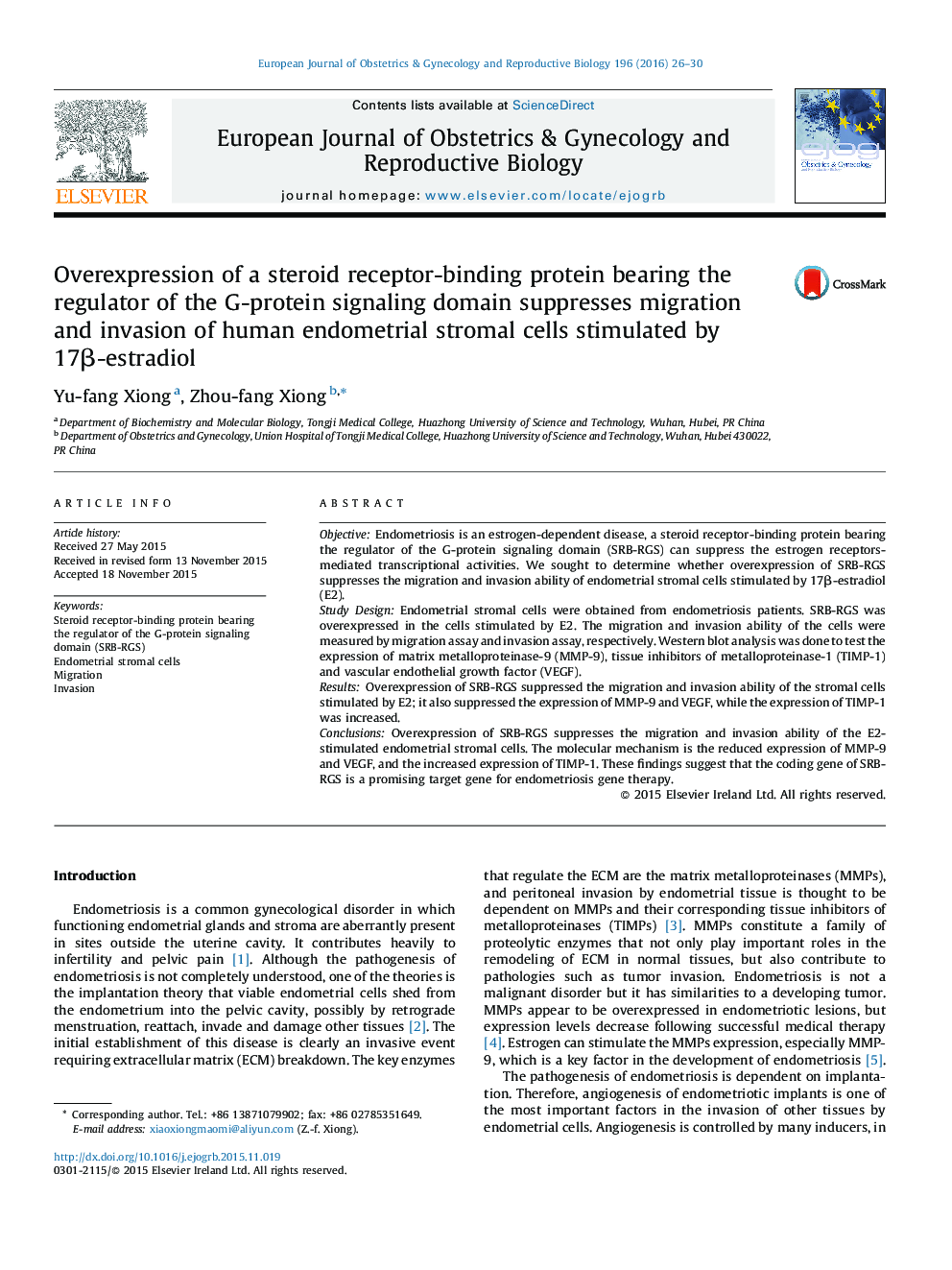| Article ID | Journal | Published Year | Pages | File Type |
|---|---|---|---|---|
| 3919416 | European Journal of Obstetrics & Gynecology and Reproductive Biology | 2016 | 5 Pages |
ObjectiveEndometriosis is an estrogen-dependent disease, a steroid receptor-binding protein bearing the regulator of the G-protein signaling domain (SRB-RGS) can suppress the estrogen receptors-mediated transcriptional activities. We sought to determine whether overexpression of SRB-RGS suppresses the migration and invasion ability of endometrial stromal cells stimulated by 17β-estradiol (E2).Study DesignEndometrial stromal cells were obtained from endometriosis patients. SRB-RGS was overexpressed in the cells stimulated by E2. The migration and invasion ability of the cells were measured by migration assay and invasion assay, respectively. Western blot analysis was done to test the expression of matrix metalloproteinase-9 (MMP-9), tissue inhibitors of metalloproteinase-1 (TIMP-1) and vascular endothelial growth factor (VEGF).ResultsOverexpression of SRB-RGS suppressed the migration and invasion ability of the stromal cells stimulated by E2; it also suppressed the expression of MMP-9 and VEGF, while the expression of TIMP-1 was increased.ConclusionsOverexpression of SRB-RGS suppresses the migration and invasion ability of the E2-stimulated endometrial stromal cells. The molecular mechanism is the reduced expression of MMP-9 and VEGF, and the increased expression of TIMP-1. These findings suggest that the coding gene of SRB-RGS is a promising target gene for endometriosis gene therapy.
